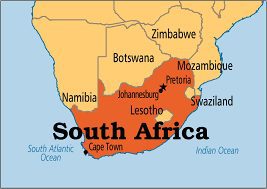South Africa has come under fire for hosting a Rwandan fugitive who was allegedly involved in the genocide that left 800,000 Tutsis and moderate Hutus dead during a three-month killing spree in 1994, APA learnt on Friday.
Pointing fingers at the South African government was the UN-sponsored International Criminal Tribunal for Rwanda (ICTR) which was established to address crimes committed during the genocide in that country 25 years ago.
The president and prosecutor of the International Residual Mechanism for Criminal Tribunals, Carmel Agius, said South Africa was failing to arrest Rwandan fugitive Protais Mpiranya who is hiding in the country despite the ICTR’s request to the local authorities.
Addressing the UN Security Council, Agius expressed frustration at Pretoria’s lack of cooperation to apprehend the Rwandan fugitive.
The residual mechanism for Rwanda – basically an international court – is based in Arusha, Tanzania and addresses residual functions not completed by the original International Criminal Tribunal for Rwanda.
Responding to the accusations, South Africa said it was working on the issue to apprehend Mpiranya, having done so before in 1999 and 2004 to arrest other Rwandan genocide fugitives.
Pretoria’s Deputy Permanent Representative to the UN, Ambassador Xolisa Mabhongo, said: “South Africa has been in regular communication with the Prosecutor’s Office and has met with the Prosecutor to explain the steps we are taking to implement the request.
“Following active engagements on a national level, I am happy to announce that the international arrest warrant has been endorsed in accordance with South Africa’s domestic law, thus paving the way to give effect to the request for assistance.”
After late Rwandan President Juvénal Habyarimana’s death, which triggered the start of the genocide, Maj. Mpiranya led the Presidential Guard whose members “tracked down, arrested and killed” Rwandan Prime Minister Agathe Uwilingiyimana.
According to reports, members of the guard under Mpiranya’s leadership also took into custody 10 Belgian peacekeepers from UNAMIR who had been guarding Uwilingiyimana’s house and allegedly killed them.
With a UN US$5 million reward on his head, the former soldier – who is a Hutu and aged 59 — first took refuge in the DR Congo after the genocide before drifting to Zimbabwe and quietly slipping into South Africa in 2011, according to reports on his movement.
NM/jn/APA


